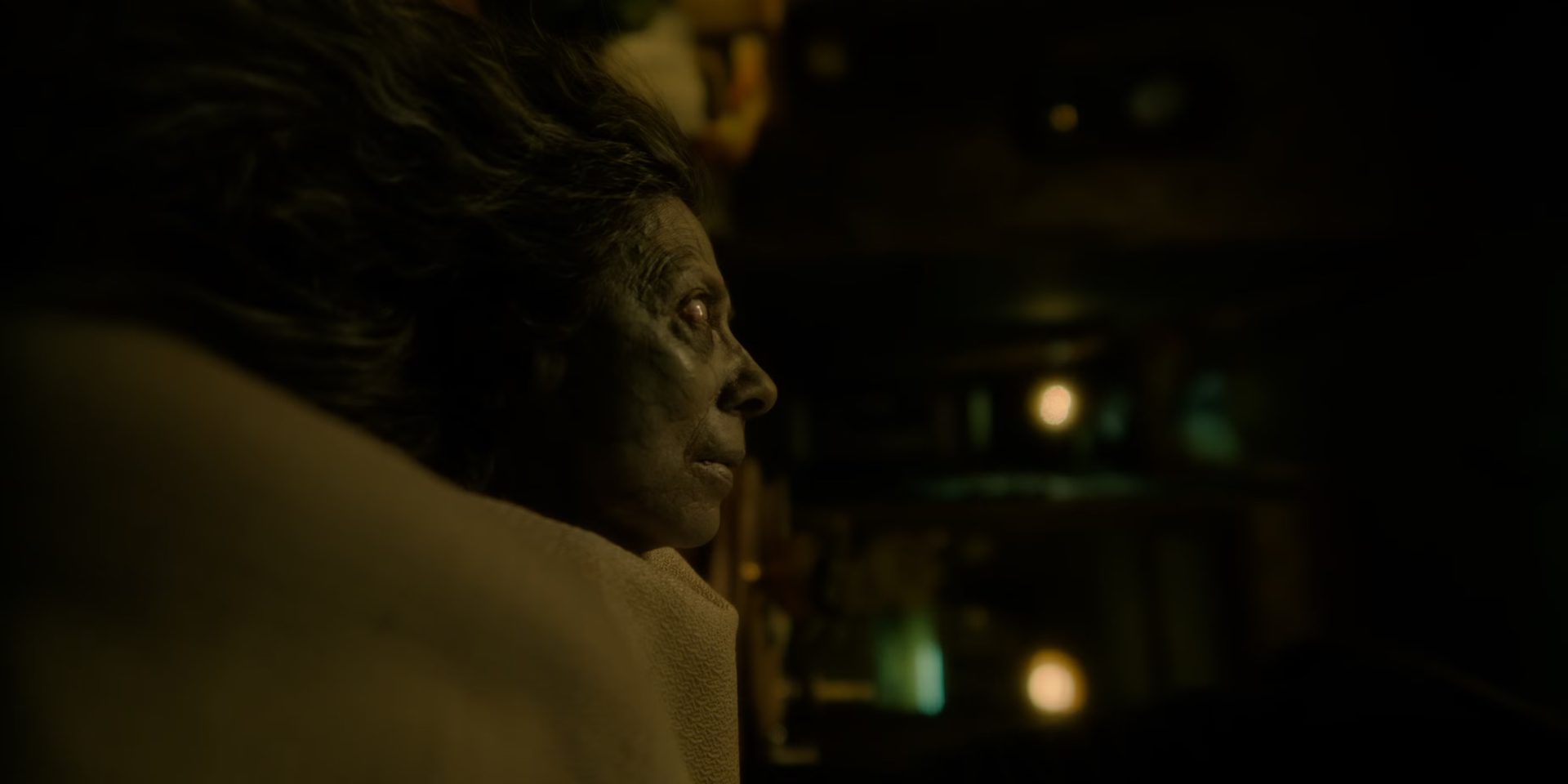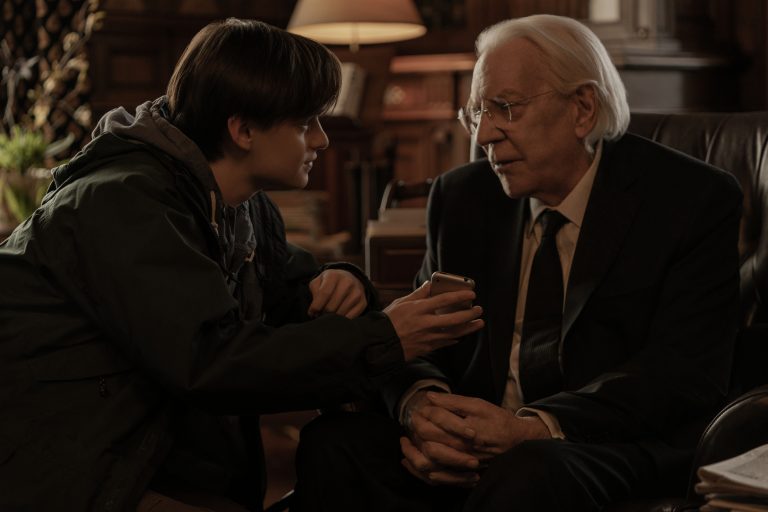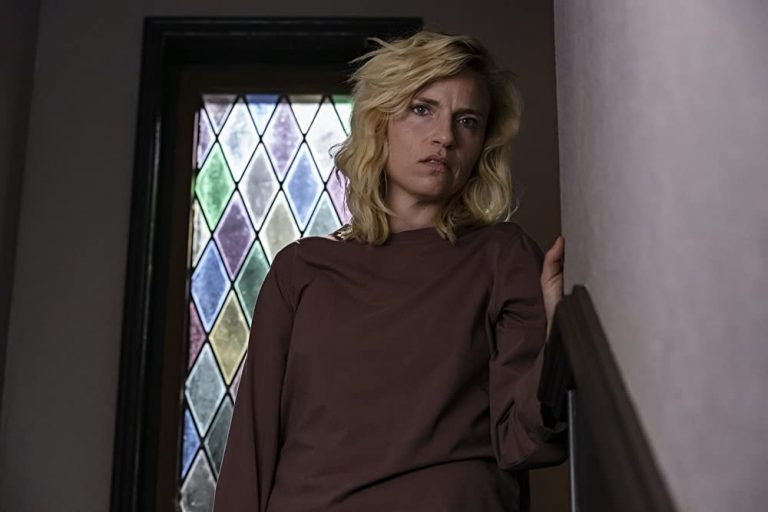Felipe Vargas’ “Rosario” (2025) is a generic, commonplace horror, expectedly underbaked and overly reliant on tropes rather than plumbing any fresh experience. There’s nothing remotely new or daring here, something that can make us sit straight and ponder the weight of the immigrant experience. If there’s anything, it has heaps of jaded storytelling, a bundle of banality, and the laziest tricks in the book. It has no interest in prising out uncomfortable horror. Of course, the film slumps into voodoo to haul itself into intriguing terrain, yet collapses early.
You need some conviction, a thrust of spiritedness to make a weary material as this sing. Unfortunately, it’s all lacking in “Rosario,” a mechanical factory product of crumpled expectations and sordid sameness. When things look so faded in their repetitiveness, where’s the spark that can make us jump out of our seats? “Rosario” is too mild and familiar to provoke severe reactions, excitement, and aversion. It’s just flat, insipid, a clutch of listless notes dialled in a mindless, contrived progression. What emerges is a distillation of bored, vague characters, hammy horror, and underwritten backstories drenched in pain.
Rosario (2025) Plot Summary & Movie Synopsis:
The film opens with Rosario’s first communion. The house is packed with guests and family. There’s an air of celebration and euphoria. But there’s also an edge of unease and apprehension. Rosario feels uncomfortable around her grandmother’s peculiar behaviour. The latter is trying to evade everyone. The father is attempting not to make the situation a grander mess. The situation feels off-key despite a designed mood of togetherness. There’s bitterness, repressed emotion swirling along with the unsaid, the unacknowledged. Can there be a recompense, a shield from this latent discomfort?
The film then cuts ahead in time by several years. Rosario is now super-successful at her job, living in Manhattan. All contact she has with her family is mostly with her father. They catch up frequently. The details of her family history are doled out only later, with quick, callous deliberation. However, it feels trifling when they are air-dropped. They strain for dramatic, emotional weight, but the delivery is so perfunctory it squeezes the air out of the film. A film like this needs a solid, compelling core that can fold the original voodoo registers into its narrative with persuasive force.
Rosario is startled by a call that informs her grandmother has died. She hasn’t met her grandmother in years. It’s been too long. There are years of grudges and resentments and hurt and bitterness separating the two. Some of it is borne of misunderstandings but the full range and impact of it widens only in later stretches, a critical disclosing of information that’s meant to assuage wounded hearts and amend broken ties.

She lands at her grandmother’s apartment, a ruined mess. The building’s undertaker acts weirdly. In fact, the few people she meets all act bizarre and creepy. The building appears derelict and abandoned, given to disuse. There’s no maintenance work done, clearly. There’s also a raging blizzard that creates a bunch of issues. The corpse lies in the room. Emergency services in the city are held up. Transport is at a standstill. Everyone’s advised to stay indoors, not step out. The situation looks intense, bleak, forbidding. Rosario is a bundle of nerves, tense, fractious, and grudging. The grandmother’s room is an ugly mess. Everything stinks, and insects crawl on utensils. It looks appalling.
Suddenly, the next-door guy raps on the door, insisting the grandmother has his air fryer. He wants it back. She is unsettled. She promises she’ll find it and give it to him, but he persists. Nevertheless, she manages to assert herself, push him back. She discovers a hidden door in the room, leading to a dungeon. It is filled with all sorts of uncanny, disturbing things, even her old tampon and toothbrush. Rosario is deeply rattled. She discovers that her grandmother Griselda, was a black magic practitioner, a Palero. Discomfited by the realisation, she wants to flee.
She just can’t be here anymore and bear it any longer. She’s done with it, burying her hopes instantly. Her grandmother might have put a curse on her. That’s what she thinks. She comes across old books that suggest her grandmother made some deal with Kobeyende. Distraught, she tells her father over a call how her grandmother is taking vengeance due to her taking his side after the divorce. She admits being scared of her mother dying and couldn’t handle that, and hence chose to be with her father.
After a conversation with Joe, she discovers Griselda used to pray for her success every day. Hence, it’s not a curse. But the demon has been invoked. Amidst her wrestling with the corpse, she has a vision of her dead mother, who reassures her of not being bitter towards her. But soon, Kobeyende barges in, vicious, spiteful, an aggressive, annihilating threat. With a great scuffle, Rosario ties her grandmother’s body to Kobeyende. She mutters spells, and the night ends, the menace seemingly broken.
Rosario (2025) Movie Ending Explained:
Does Rosario escape the curse?
When Oscar, her father, arrives, many other realisations and discoveries come to the fore. It turns out Oscar was the one who made the deal, going into the secret chamber. He did it for the better future of Rosario. As immigrants, this is the only thing he saw as lifting them out of misery. Since then, Griselda has been sacrificing her blood to keep Kobeyende away. The minute Oscar’s blood drops into the cauldron, Kobeyende possesses him. Rosario has no option but to drive a blade through him. This, she hopes, has ended this dramatic, ugly chapter in her life and put the evil spirit to rest.
Few months later, Rosario is thriving at work. She’s happy and satisfied. Her clients are also pleased with her. Everything seems to be going well until there’s a sudden, brutal interruption. A hand shoots out of Rosario’s mouth, the film cuts to black. Essentially, the spirits are still strong and she has to battle them yet again.








